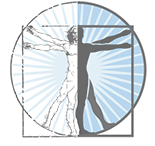📌 Course Eligibility & Prerequisites
The Pediatric Advanced Life Support (PALS) Renewal Course is intended for healthcare providers who respond to pediatric emergencies in infants and children, including personnel in emergency response, emergency medicine, intensive care, and critical care units.
To attend this course, you must meet both of the following requirements:
⚠️ You must bring both cards to class. Expired cards are not accepted. The expiration date on the PALS card is only honored through the end of the month in which it expires.
🧒 Course Content
The PALS Renewal Course covers the most critical components of pediatric resuscitation, including:
-
1- and 2-rescuer child CPR and AED use
-
1- and 2-rescuer infant CPR
-
Respiratory emergency management
-
Rhythm disturbances and electrical therapy
-
Vascular access techniques
-
Cardiac, respiratory, and shock case-based discussions
-
Systematic Approach to Pediatric Assessment
-
Effective team roles and resuscitation dynamics
✅ Upon successful completion of the course (including all assessments), you will receive a PALS Provider e-card, valid for two years.
📘 Course Materials
-
HNMC Employees: May borrow a PALS manual prior to class from the Simulation Center office on 4 West – ISL. A payroll deduction form must be completed when borrowing and will be discarded upon return of the book.
-
General Public: Manuals can be picked up prior to class or will be distributed the day of training. Participants may also purchase a manual through an AHA-authorized provider.
📧 E-Card Certification
Your PALS e-card will be sent to the email address you provided during registration within two weeks of course completion.
If you have questions or need further assistance, please contact us at 201-833-3010 or simulation@holyname.org.


 (201) 833-3010
(201) 833-3010


